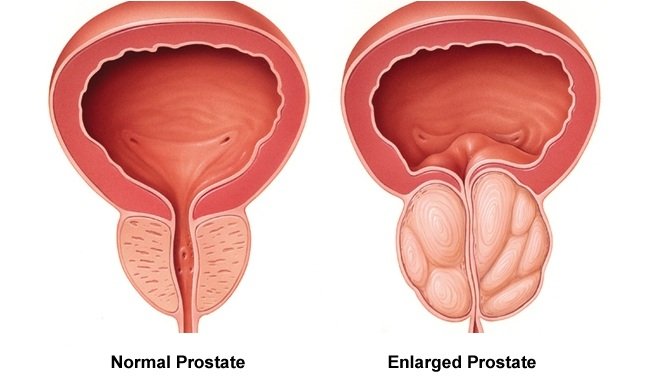Prostate enlargement, medically known as benign prostatic hyperplasia (BPH), is a common condition affecting men, especially as they age. The prostate, a small gland situated just below the bladder, tends to grow larger with age, which can lead to various urinary issues. If you’re looking for Prostate Enlargement Treatment in Vaishali, it’s crucial to understand the symptoms, causes, and treatment options available to manage this condition effectively.
Understanding Prostate Enlargement (BPH)
The prostate gland plays an essential role in producing fluid that nourishes and transports sperm. However, as men age, the cells of the prostate gland may begin to multiply, causing the gland to swell. This enlargement can lead to compression of the urethra (the tube through which urine exits the body), obstructing the flow of urine and causing a variety of urinary symptoms.
Common Symptoms of Prostate Enlargement
- Frequent urination: Men with BPH often feel the need to urinate more frequently, especially at night (nocturia).
- Difficulty starting urination: A weak or interrupted stream of urine is another common symptom of prostate enlargement.
- Incomplete bladder emptying: Men with BPH may feel that their bladder isn’t fully empty after urinating.
- Urgency to urinate: There may be a sudden, intense urge to urinate, making it difficult to delay.
- Weak urinary stream: The flow of urine may be slower than usual or may stop and start.
While BPH is not cancerous and doesn’t increase the risk of prostate cancer, it can significantly impact the quality of life if left untreated.
Causes and Risk Factors of Prostate Enlargement
The exact cause of BPH isn’t fully understood, but several factors are believed to contribute to the condition:
- Age: Prostate enlargement is most common in men over 50, and the risk increases as men grow older.
- Hormonal changes: As men age, the balance of hormones, particularly testosterone and dihydrotestosterone (DHT), changes, which may contribute to prostate growth.
- Family history: If you have a family history of prostate problems, you may be more likely to develop BPH.
- Lifestyle factors: Obesity, lack of exercise, and poor dietary habits may also play a role in the development of prostate enlargement.
Diagnostic Tests for Prostate Enlargement
If you’re experiencing any of the symptoms associated with BPH, it’s essential to consult a urologist for an accurate diagnosis. At Prostate Enlargement Treatment in Vaishali, our specialists will perform a series of tests to determine the severity of the condition, which may include:
- Digital rectal exam (DRE): The doctor checks the size of the prostate by feeling it through the rectal wall.
- Urine test: This can help rule out other conditions that cause similar symptoms, such as infection.
- Prostate-specific antigen (PSA) test: This blood test measures the level of PSA, a protein produced by the prostate, which can be elevated in BPH or prostate cancer.
- Ultrasound: An imaging test may be used to get a clearer view of the prostate and bladder.
- Uroflowmetry: This test measures the strength and amount of urine flow to determine how much blockage the enlarged prostate is causing.
Treatment Options for Prostate Enlargement
The treatment for BPH depends on the severity of the symptoms and how much they affect your daily life. At Prostate Enlargement Treatment in Vaishali, we offer a range of treatment options tailored to the individual needs of our patients.
1. Medications
For many men, medication is the first line of treatment for BPH. These medications can help relax the muscles around the prostate and bladder neck, making it easier to urinate. Common medications include:
- Alpha-blockers: These drugs, such as tamsulosin and alfuzosin, help relax the muscle fibers in the prostate and bladder neck.
- 5-alpha reductase inhibitors: These medications, such as finasteride and dutasteride, help shrink the prostate by reducing the production of DHT.
- Combination therapy: In some cases, a combination of both alpha-blockers and 5-alpha reductase inhibitors may be prescribed.
2. Minimally Invasive Procedures
If medication is not sufficient to relieve symptoms, minimally invasive procedures may be recommended:
- Transurethral resection of the prostate (TURP): This is a standard surgical procedure where part of the prostate is removed to relieve the blockage.
- Laser therapy: A laser is used to remove or shrink excess prostate tissue, offering a less invasive option with quicker recovery.
- Prostatic urethral lift (PUL): This procedure involves the placement of small implants to hold the enlarged prostate tissue away from the urethra, allowing better urine flow.
3. Lifestyle Modifications
In addition to medical treatment, certain lifestyle changes can help manage symptoms of BPH:
- Dietary changes: Reducing caffeine and alcohol intake can help alleviate urinary symptoms.
- Physical activity: Regular exercise and maintaining a healthy weight can improve overall prostate health.
- Fluid management: Limiting fluid intake in the evening can help reduce nocturia (frequent nighttime urination).
Conclusion
Prostate enlargement is a common condition among aging men, but it doesn’t have to interfere with your quality of life. Early detection and personalized treatment can make a significant difference in managing the symptoms effectively. If you’re experiencing any signs of BPH, don’t hesitate to seek help from our experienced team at Prostate Enlargement Treatment in Vaishali. We are committed to providing comprehensive care to ensure the best possible outcomes for our patients.
To learn more about Urology visit draggarwalsurology.com or also follow us on LinkedIn


